Developing Concentration Adding Up to 5 Worksheets for Ages 3-6
5 filtered results
-
From - To
Boost your child's focus and mathematical skills with our "Developing Concentration: Adding Up to 5" worksheets, designed specifically for ages 3-6. These engaging activities promote concentration through fun and interactive math challenges, helping young learners grasp the concept of addition in a playful manner. Each worksheet incorporates colorful visuals and relatable themes to capture children's attention, making learning enjoyable and effective. As they navigate through simple addition problems, little ones will enhance their cognitive abilities and problem-solving skills. Perfect for home or classroom use, these worksheets will provide your child with the foundational tools needed for future academic success.
Developing concentration skills in young children, particularly in contexts like adding up to 5, is crucial for their overall cognitive development and future learning. For children aged 3-6, focusing on tasks such as simple addition helps lay a foundational understanding of numbers and basic math concepts. Concentration aids children in committing these new skills to memory and, importantly, fosters a sense of achievement and confidence in their abilities.
When teachers and parents prioritize concentration activities, they create an environment where children learn to focus their attention, listen, and follow instructions. These skills translate beyond numerical tasks; they enhance children's capacity to engage in various learning activities, from reading to problem-solving. Moreover, strong concentration skills are linked to better emotional regulation and social skills, as focused children often have more control over their impulses and reactions.
By incorporating interactive and playful learning strategies that include adding up to 5, parents and teachers not only make learning enjoyable but also equip kids with essential skills they'll need throughout their academic journey. Ultimately, investing in concentration practice promotes not just math proficiency but also critical cognitive and interpersonal skills that pave the way for lifelong learning.

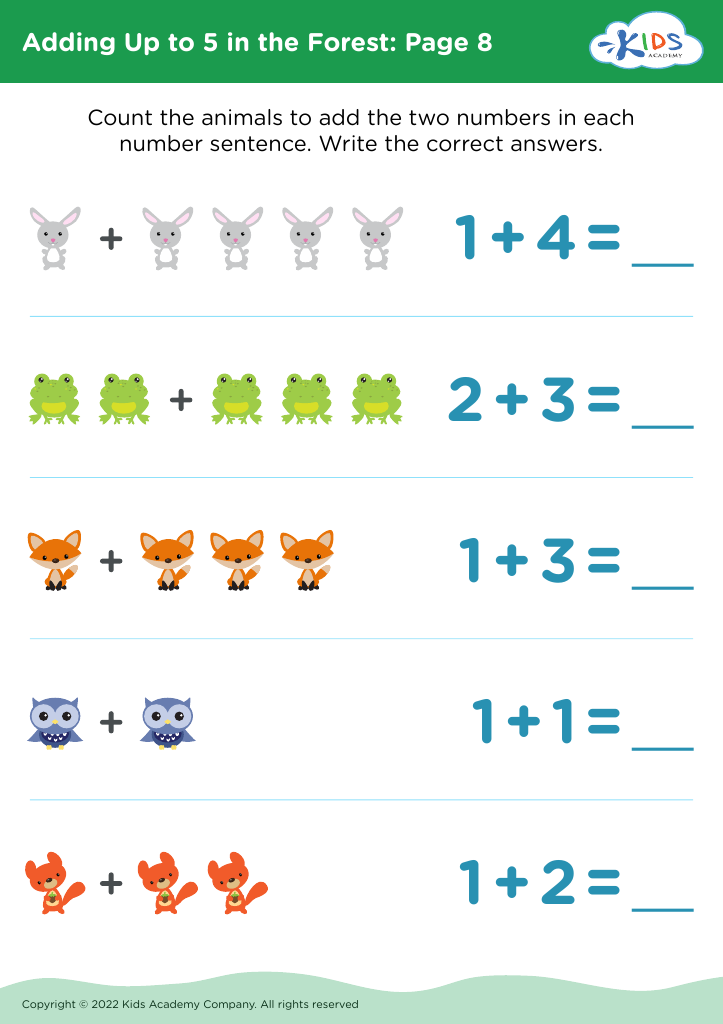
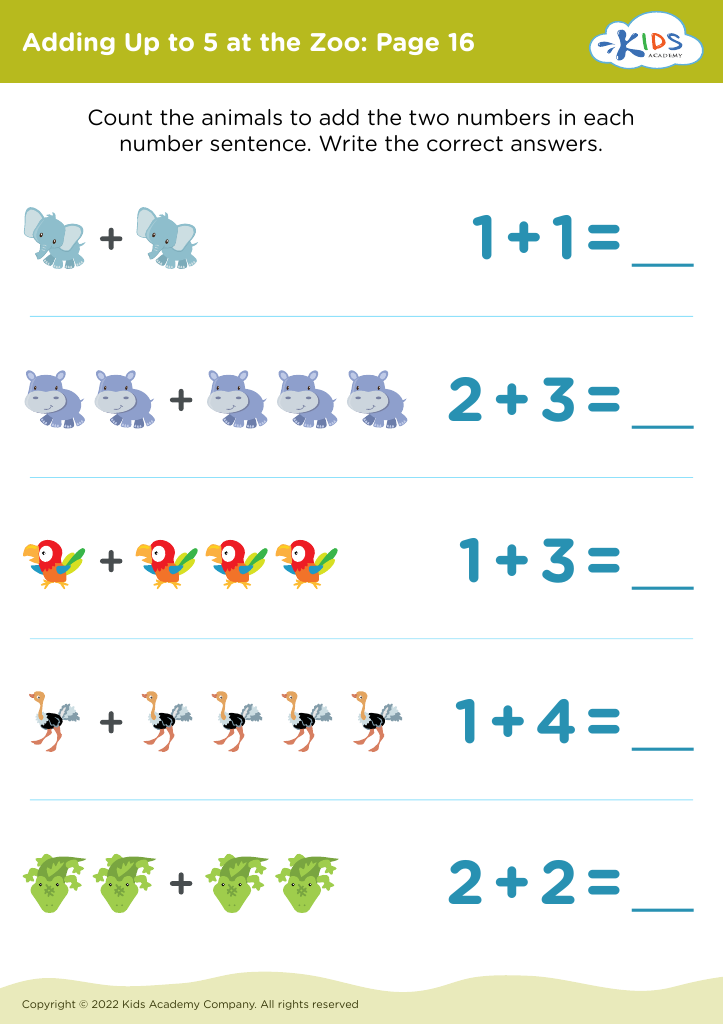
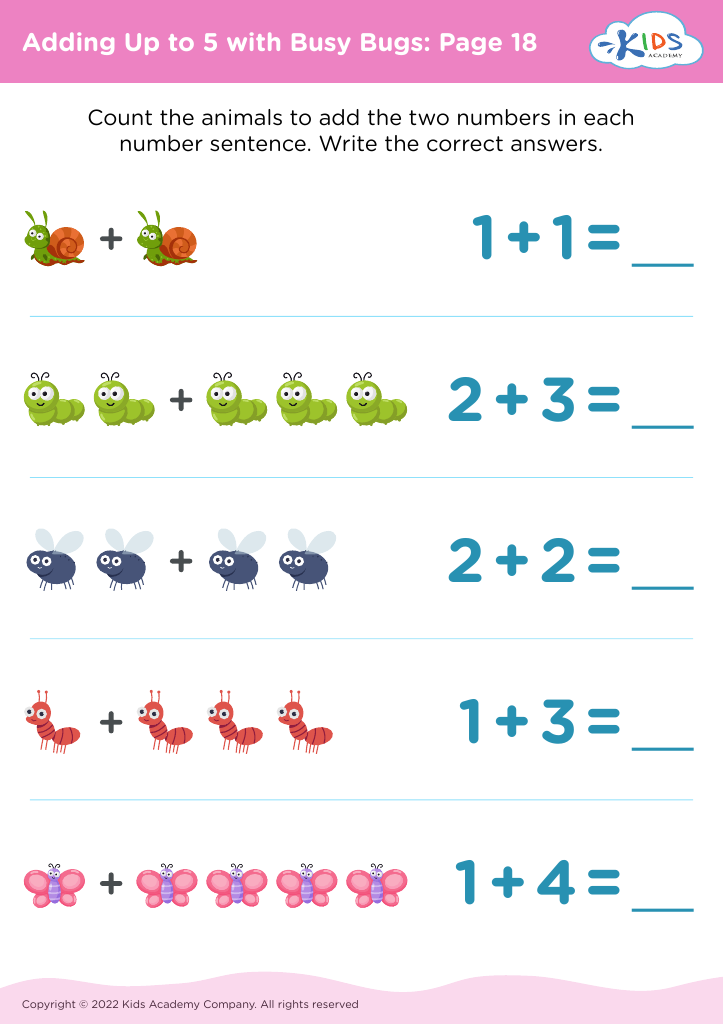
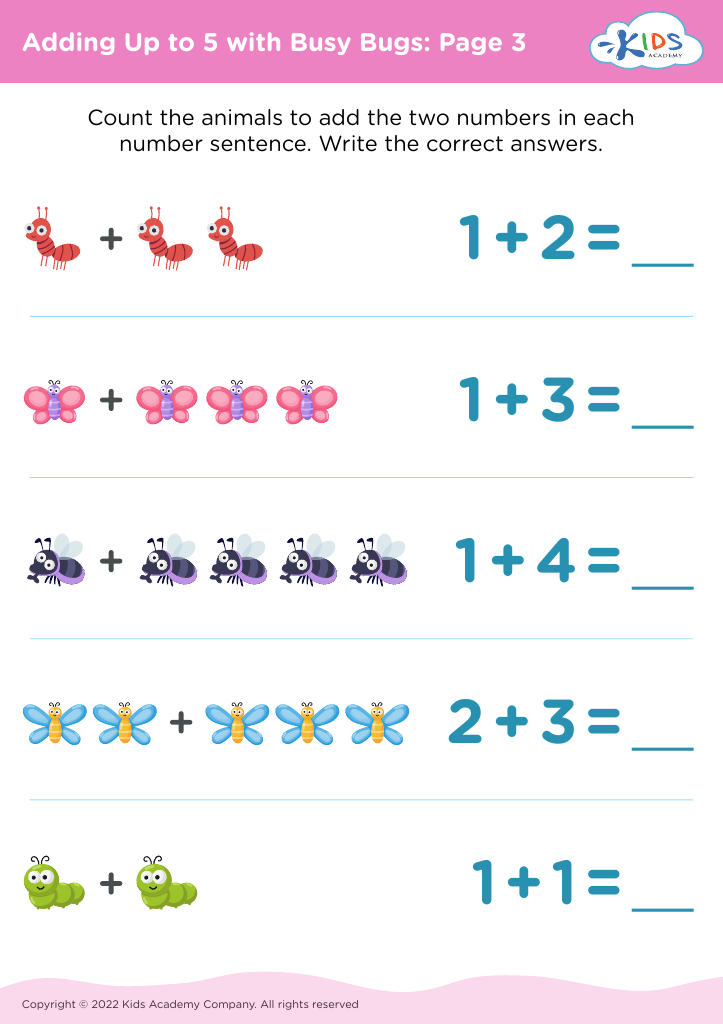
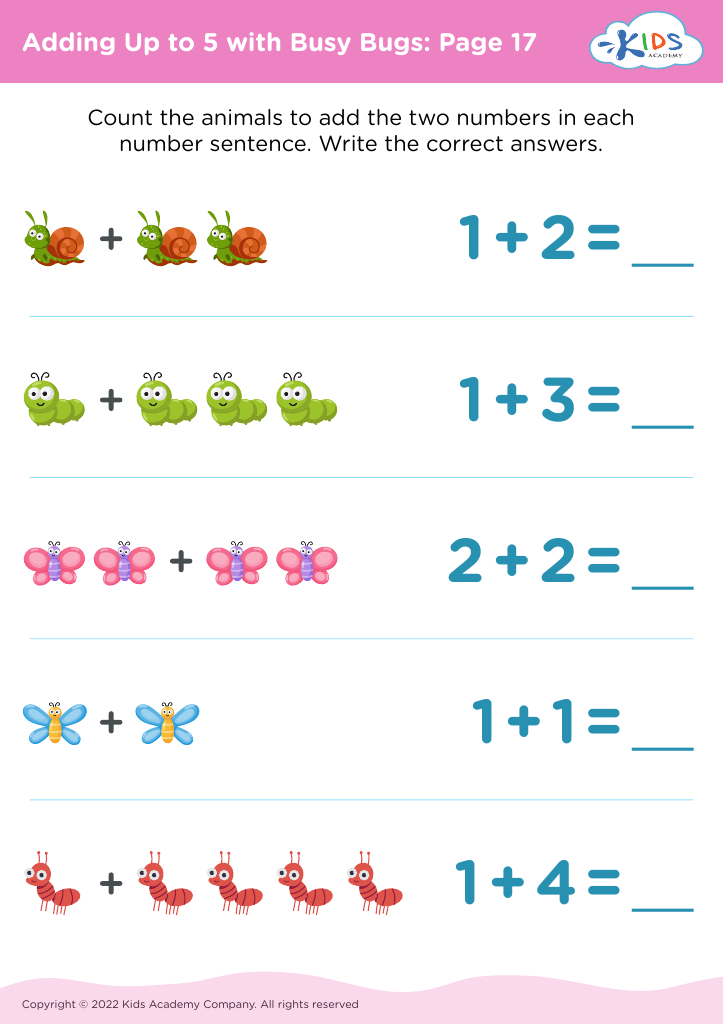




%20(1).jpg)











